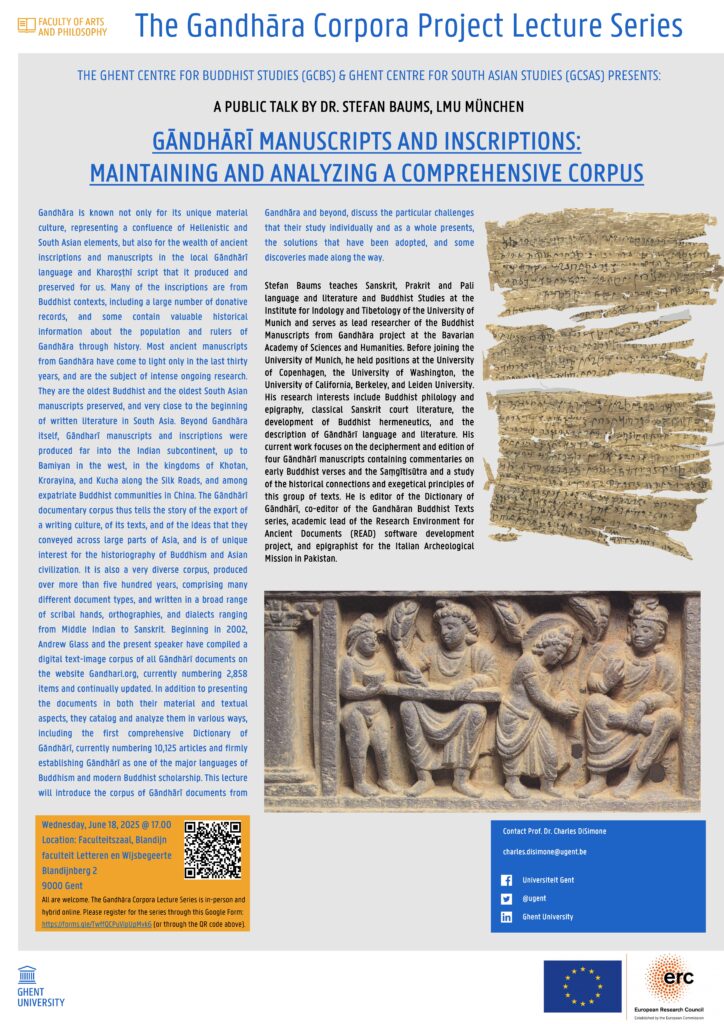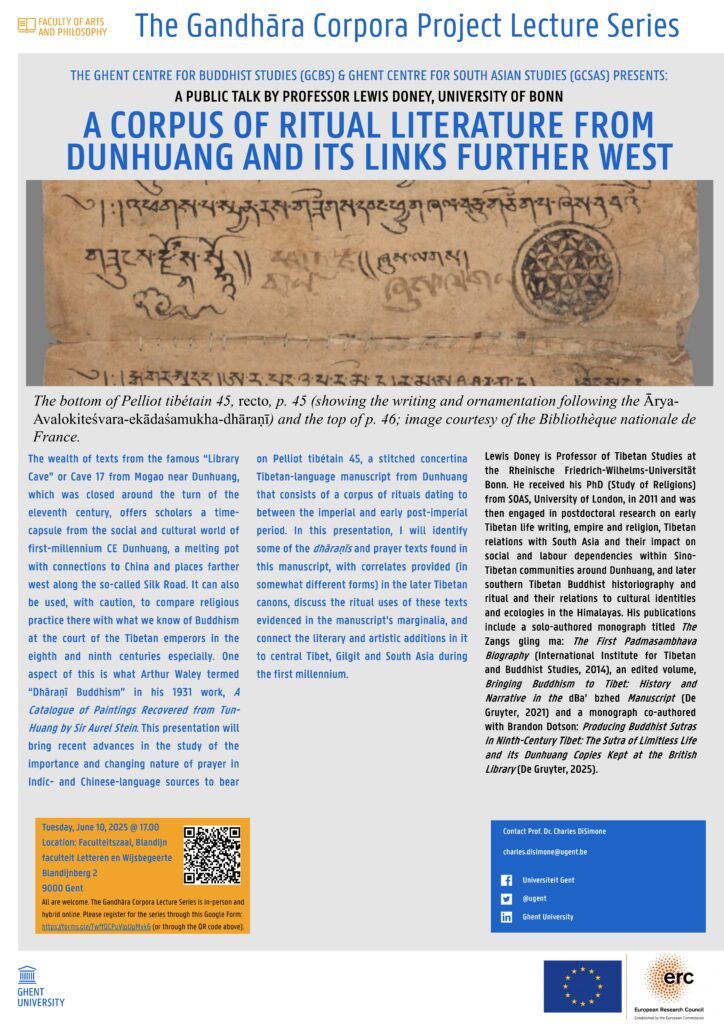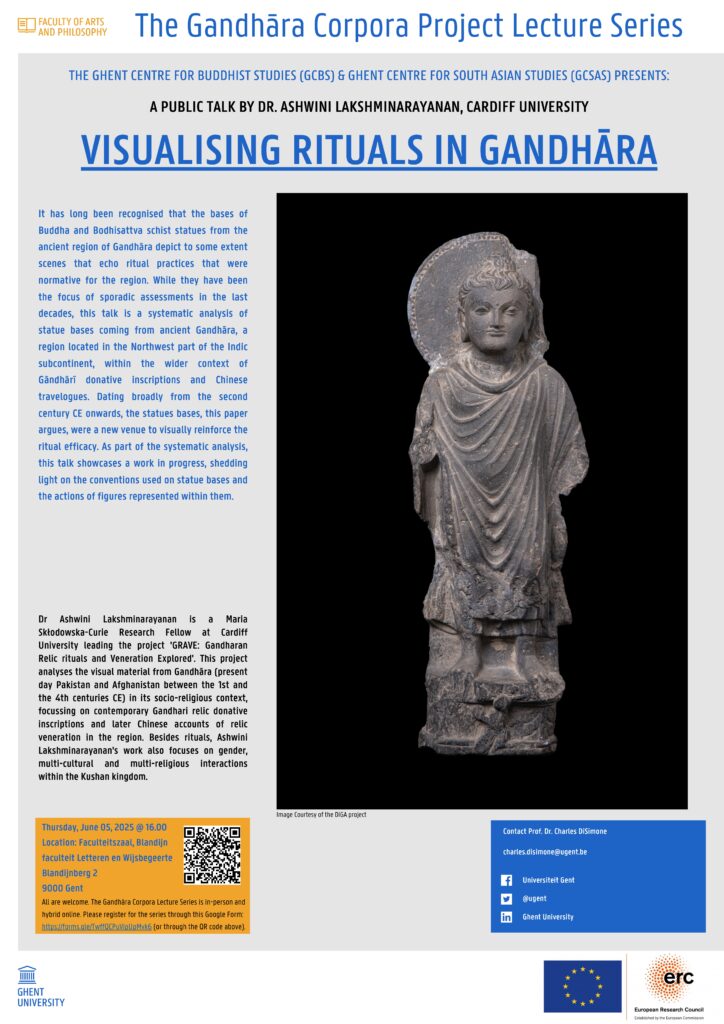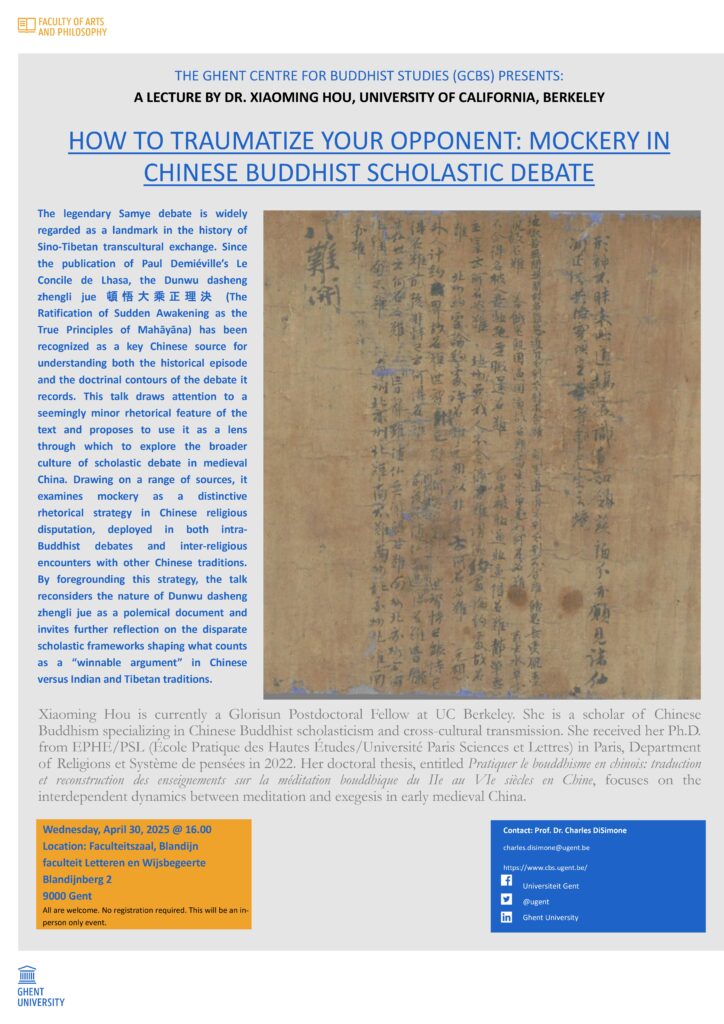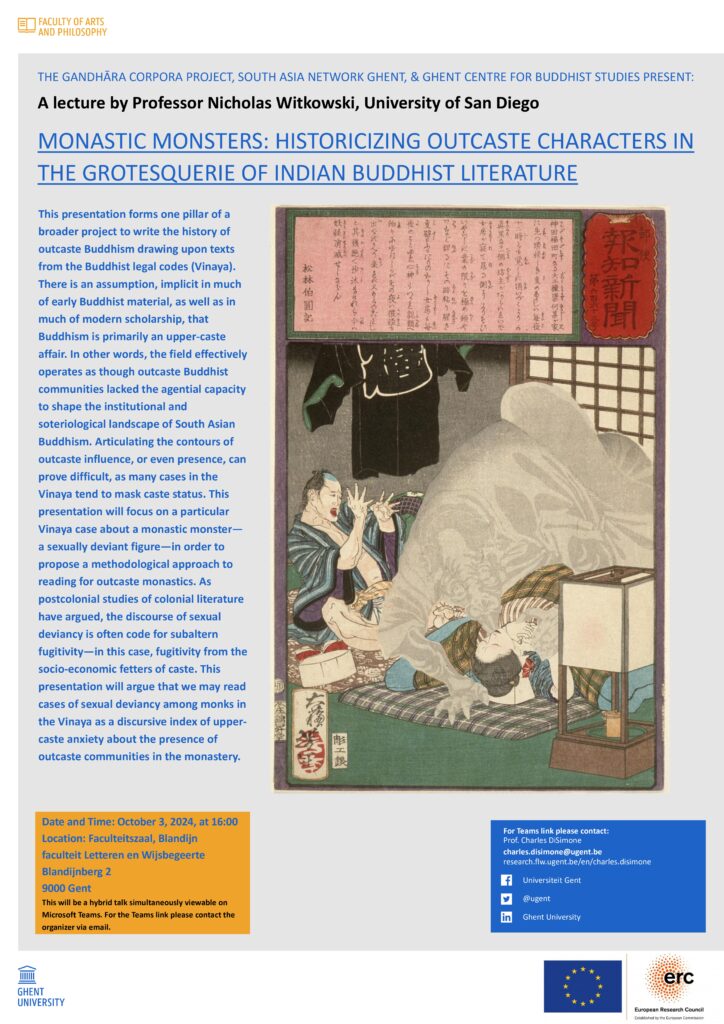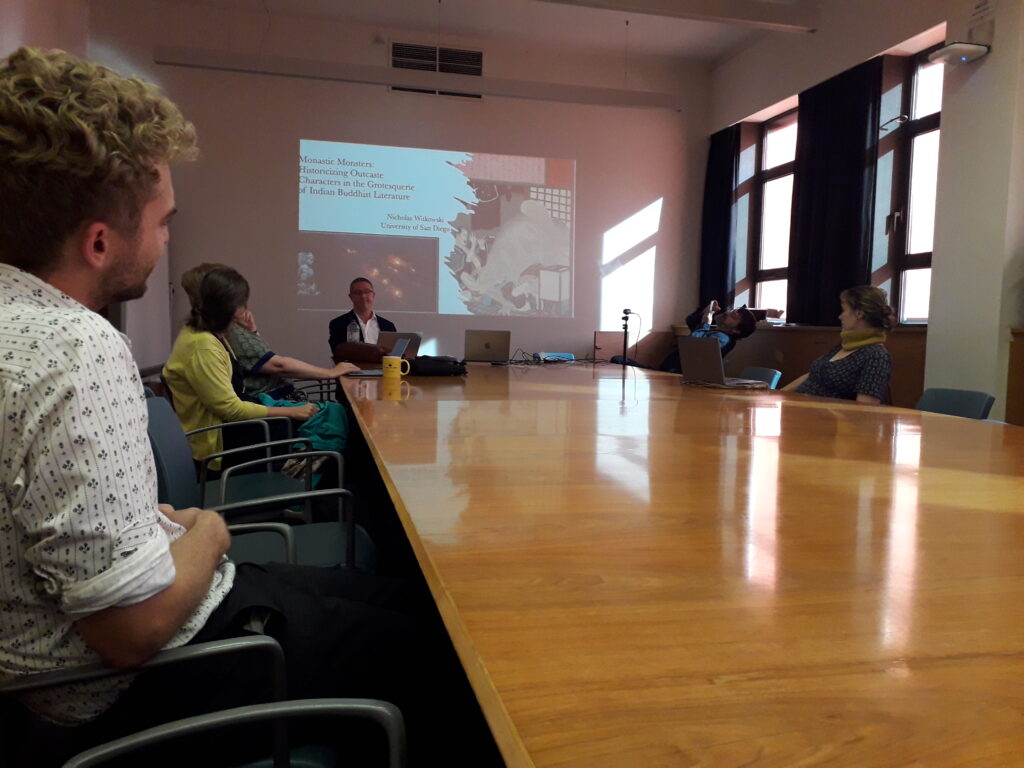We are excited to announce the next lecture in our ongoing “Gandhāra Corpora Project Lecture Series,” featuring Dr. Reinier Langelaar (IKGA, Austrian Academy of Sciences). The Gandhāra Corpora Project Lecture Series is organized by Prof. Charles DiSimone, leader of the ERC-funded project “Corpora in Greater Gandhāra: Tracing the development of Buddhist textuality and Gilgit/Bamiyan manuscript networks in the first millennium CE” at the Ghent Centre for Buddhist Studies.
Title: The Last Words of a God-King: A Corpus of Tibetan Buddhist Narrative Histories
Speaker: Dr. Reinier Langelaar (IKGA, Austrian Academy of Sciences)
Timing: Nov 25, 2025 @ 17.00 CET
Location: Faculteitszaal, Blandijn
Faculteit Letteren en Wijsbegeerte
Blandijnberg 2
9000 Gent
All are welcome. The Gandhāra Corpora Lecture Series is in-person and hybrid online. Please register for the series through this Google Form: https://forms.gle/TwffQCPuVipUpMvk6
Abstract:
This lecture will present a highly influential corpus of Buddhist historiographies, composed and expanded upon from perhaps the 12th c. CE onward. These works are attributed, as so-called ‘treasure texts,’ to the 7th-c. emperor Songtsen ‘the Profound’ (Tib. srong-btsan sgam-po), himself claimed to be an emanation of the bodhisattva Avalokiteśvara. This corpus constitutes a literary meeting ground for a series of pivotal developments in the realm of Tibetan Buddhist religion, political philosophy, and perceptions of Tibet and its people at large. Weaving compelling tales of Tibetan society’s history, it played a central role in formulating and propagating understandings of Tibet as a Buddhist realm under Avalokiteśvara’s special protection. Though eminently focused on Tibet, these works are also embedded in interregional webs of cultural exchange, potentially drawing inspiration from Indian sūtra literature, Newari Buddhism, Chinese and Khotanese notions of bodhisattva kingship, and more. This talk will introduce this body of works, discuss the particular text-historical and methodological challenges it presents, and show what we may hope to gain from its study.
Bio:
Reinier Langelaar is a researcher at the Institute for the Cultural and Intellectual History of Asia (IKGA) at the Austrian Academy of Sciences (AAS). His research interests include religious history, pre-modern ethnic identity, religious history, as well as kinship and genealogy. His work has employed historical, text-critical, ethnographic and comparative methods, and has appeared in journals such as Inner Asia, The Medieval History Journal, the Journal of the Royal Asiatic Society, and the Bulletin of the School of Oriental and African Studies. At present, he is key researcher in the FWF-funded Cluster of Excellence ‘EurAsian Transformations.’ In 2025, he was awarded an ERC starting grant for the project FOUNT: ‘The Narrative Foundations of Tibetan Buddhism,’ to be hosted at the AAS (2026-31).




